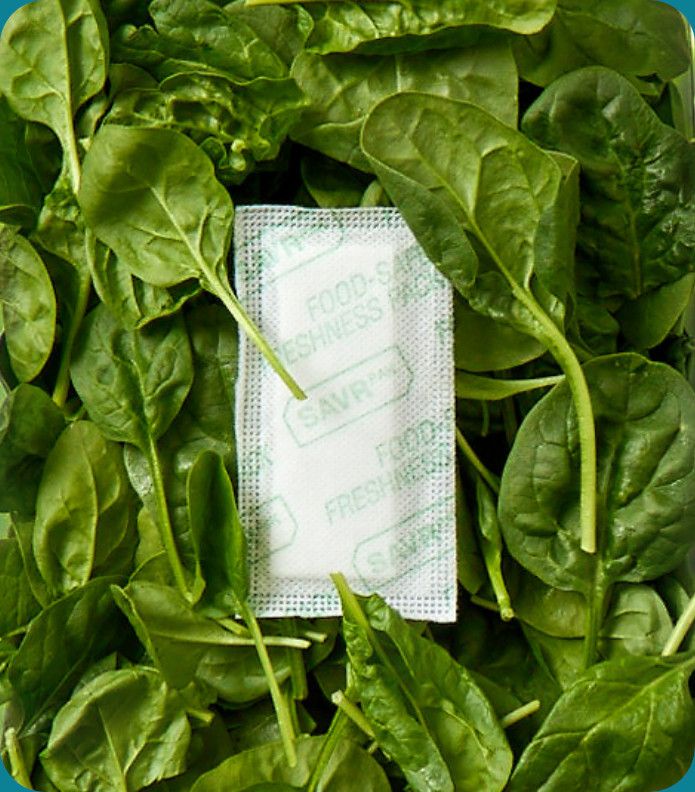Rocket Scientist Ends Soggy Food

For all of the innovation in the logistics, marketing and automation of restaurant delivery, there’s no escaping the fact that most food taken off the premises pales in comparison to the quality of food eaten fresh off the line. Thanks to an invention from a rocket scientist who says he’s solved the problem of condensation buildup in packaging, we might be on the cusp of a revolution enabling more foods to travel better.
Called SAVRpak, the product is a small, 4-inch-by-4-inch patch of plant-based pulp that is cooled and then stuck inside a delivery container before leaving the store in the hands of a courier or consumer. Harnessing the power of thermodynamics—not chemistry as some initially expect—these food-safe packs soak up the moisture that takes the crunch out of foods such as fried chicken, pizza, fries, onion rings, and scores of other cuisines that degrade when trapped inside a stuffy box.
Bill Birgen, a rocket scientist who has done work for the U.S. Department of Defense, NASA, DARPA and Virgin Galactic, invented the SAVRpak a decade ago after years of frustration that the sandwiches he’d make every Sunday night for a week of lunches would be a soggy mess by the end of the week. His career specialty was controlling hostile environments at very high altitudes, including moisture and condensation that can degrade electronics and lead to catastrophic equipment failures, so this problem was well within his wheelhouse.
“He used it in his meals for about eight years without really talking about it, because that’s what rocket scientists do,” said SAVRpak President Scott Nelson, previously Panera’s vice president of marketing. “One of his friends said to him, ‘Hey, stupid, this is kind of a big deal, you know. We could probably do something with this.’ So, here we are.”
A mission to end soggy food
Asked what motivated him to leave such a big job for a startup, Nelson said his years at Panera—including the first six months of COVID—highlighted the lack of innovation in the packaging world, which became a much larger issue as so much of the restaurant business shifted to off-premises channels.
“When we get that delivery food, it’s soggy, the fries are wet, the buns of the hamburger are wet because condensation forms in those containers,” he said. “The pizza is not as crispy and crusty as it should be … what we are doing is ending soggy food.”
Asked if putting the cooled pulp product inside a small delivery package could create its own issues, like cooling down the food, he said testing has proved that “temperature trends were not statistically significant.” He added the company also flew to Canada to conduct in-depth fry tests with McCain Foods, the world’s largest manufacturer of frozen potato products.
Breaded and fried items show the most positive results so far, with pizza, chicken of all kinds, and appetizers like mozzarella sticks and onion rings are all “absolutely amazing” when packaged with one of the moisture-eating packs.
“The question is what doesn’t it work well with?” Nelson asked. “We’re still trying to figure that out, because we’re going after things we know are going to work well, but I’m sure there are things that it does not work well with, but we’re covering most of the key delivery items with what we’re doing.”
Beyond those items, which comprise the bulk of delivery and carryout foods in the U.S., SAVRpak is also exploring large-scale applications for the technology, such as allowing produce suppliers and restaurants that ship a lot of produce across the country to use the packs when transporting lettuces and herbs, for example. There’s potential to significantly reduce food waste along the way.
With Mark Cuban as a financial backer and a stack of high-profile awards, SAVRpak emerged from the shadows in 2021 and used the recent National Restaurant Association Show in Chicago as a coming-out party to introduce its Drop-In moisture control product that extends the shelf-life of produce up to three times.
The company inked a large deal with Sysco to use the product at 75 of that company’s warehouses, as well as a number of small-scale, independent restaurant operators. From here, the company is planning to scale up quickly, and Nelson said its team is “talking to pretty much every major QSR, either piloting or testing.”
)
)
)



)
)
)
)
)
)
)
)
)
)
)
)
)
)
)
)
)
)
)
)
)
)
)
)
)
)
)
)
)
)
)
)
)
)
)
)
)
)
)